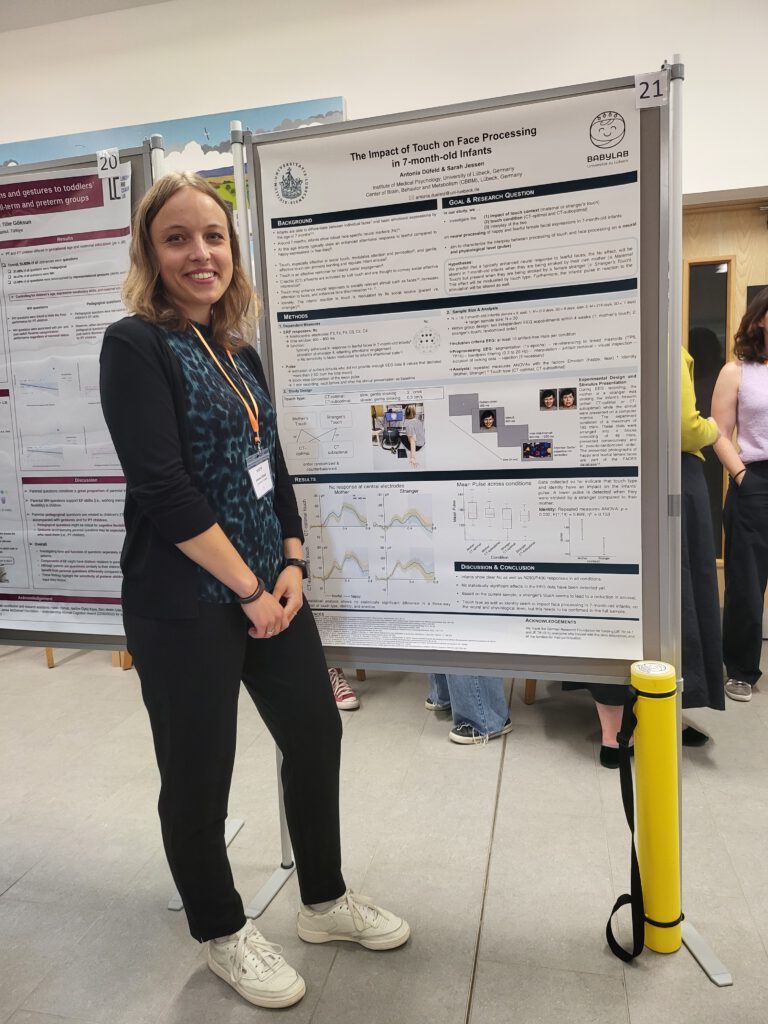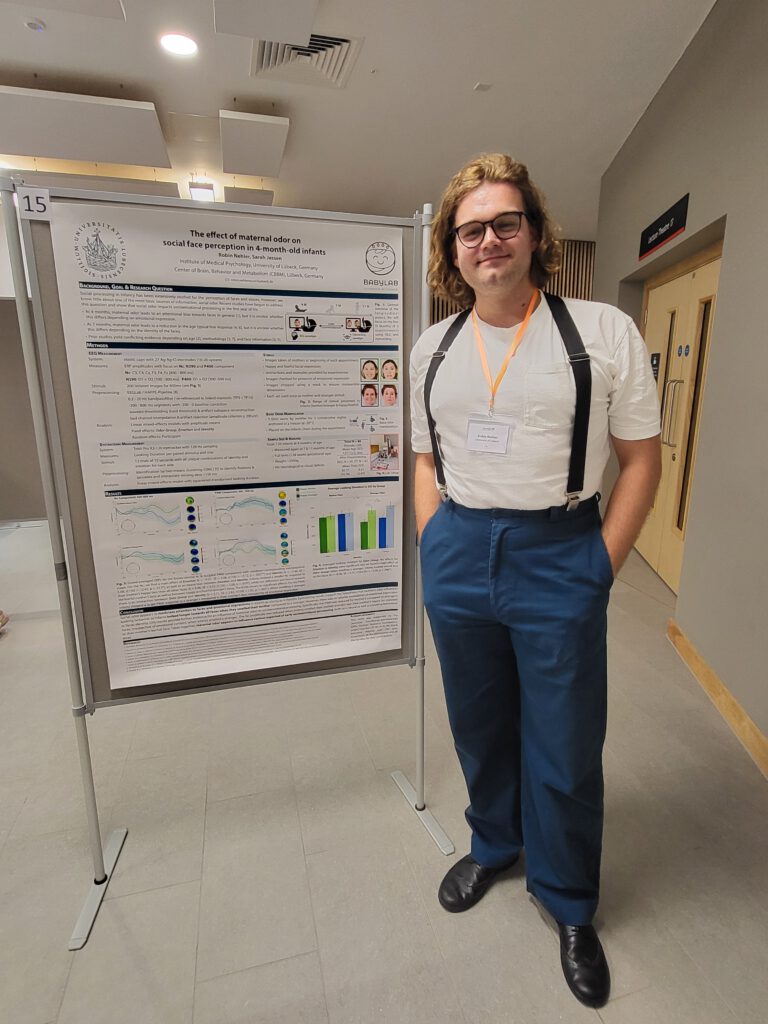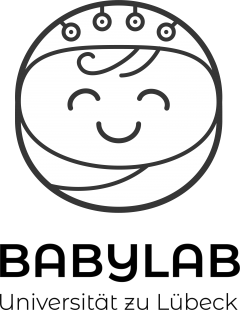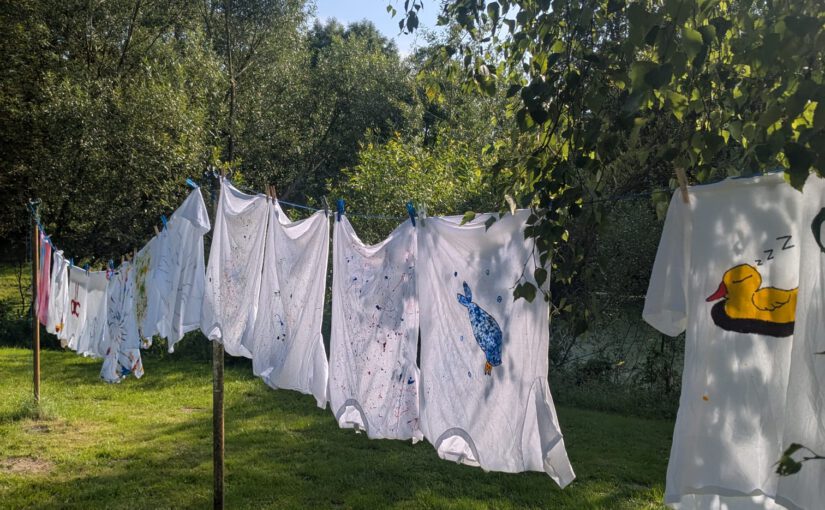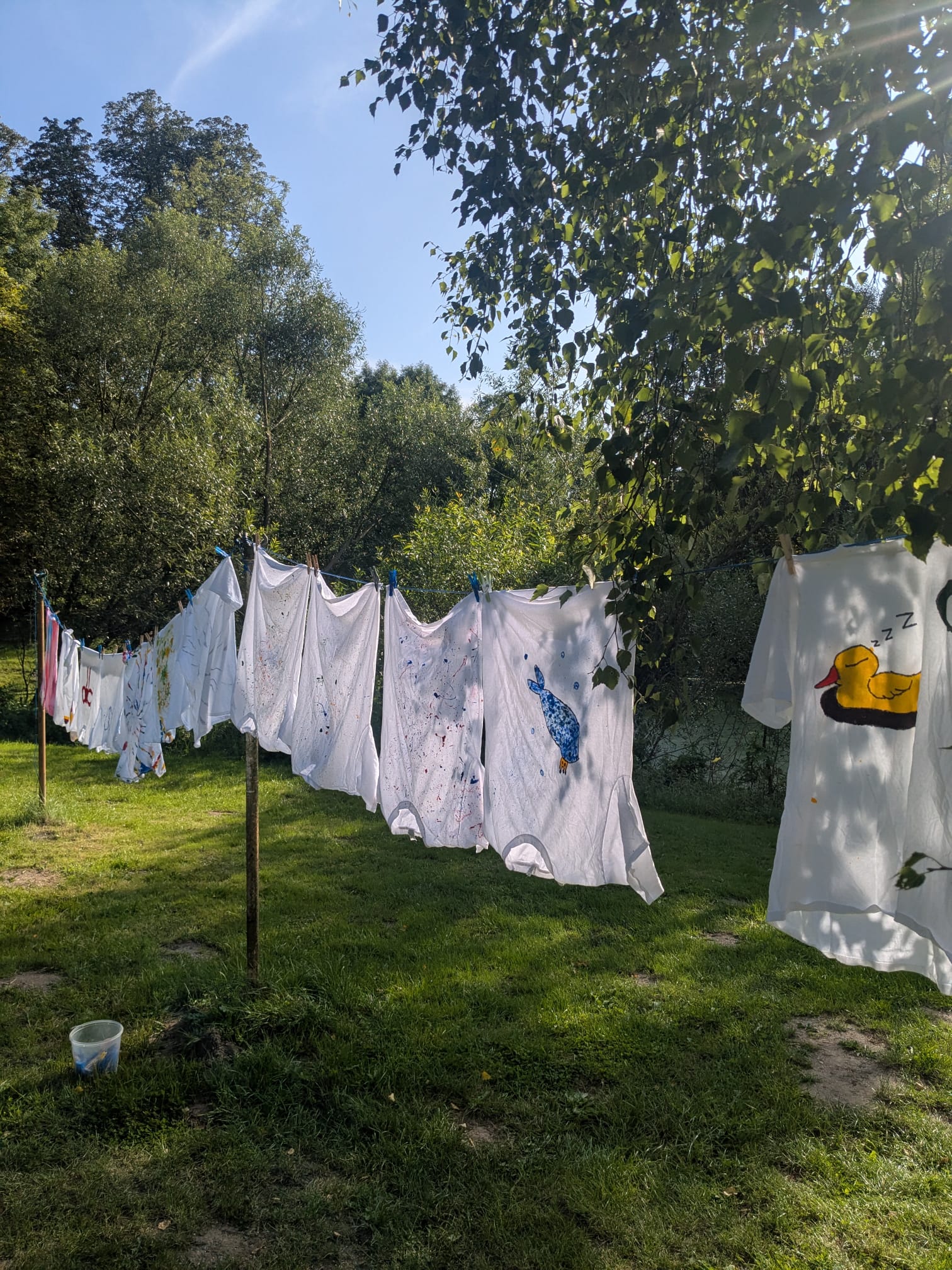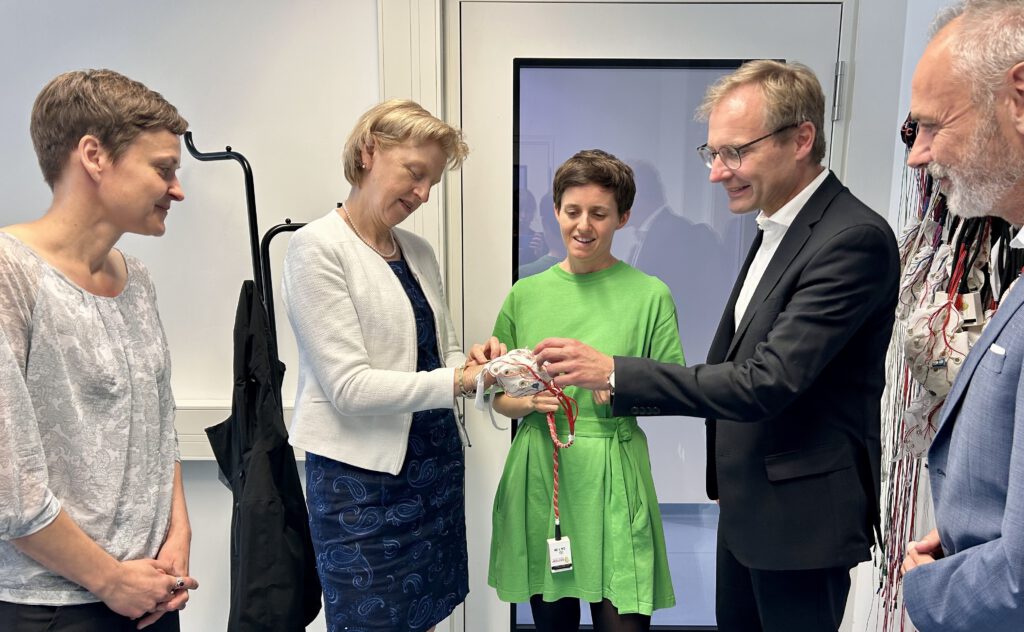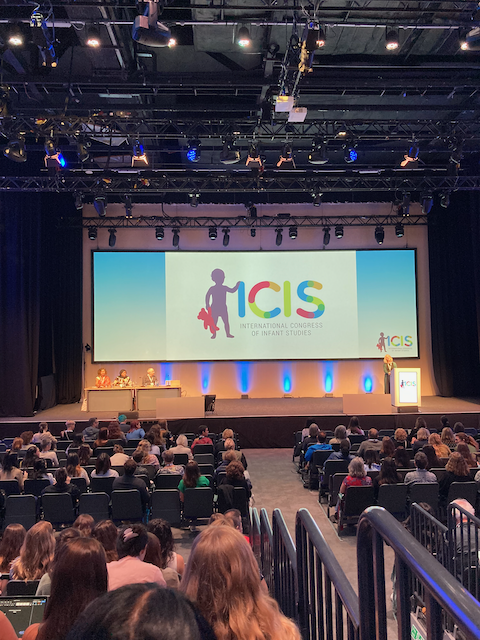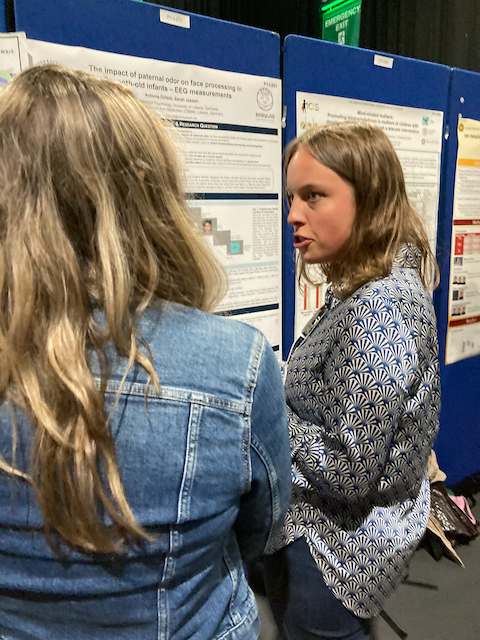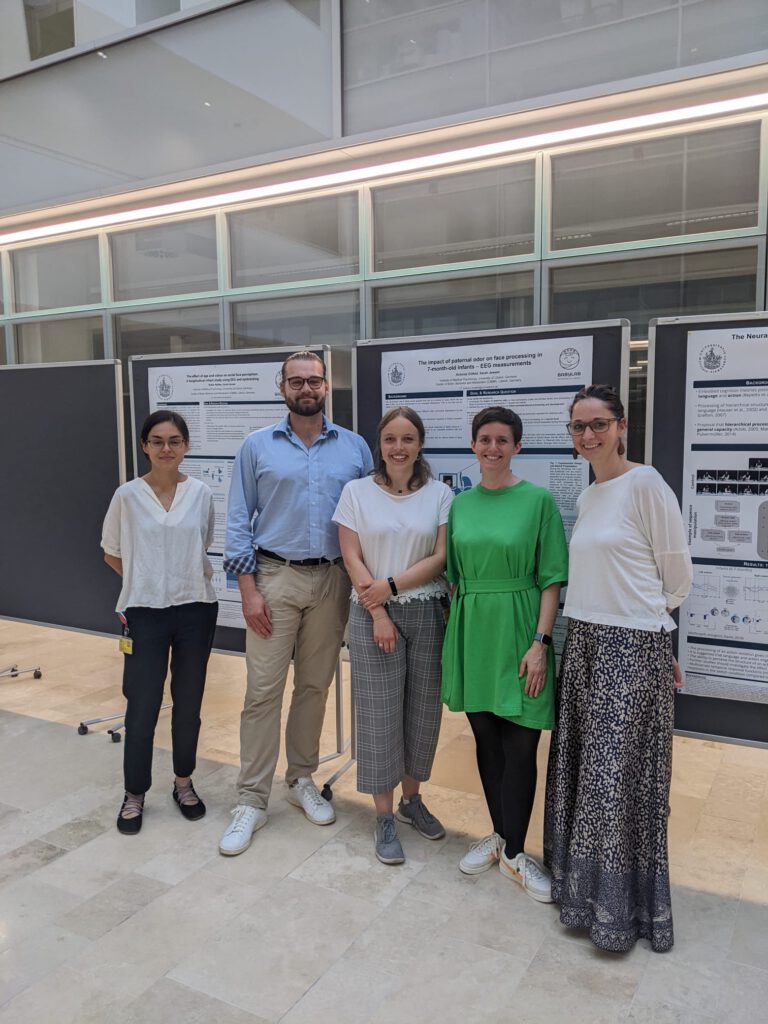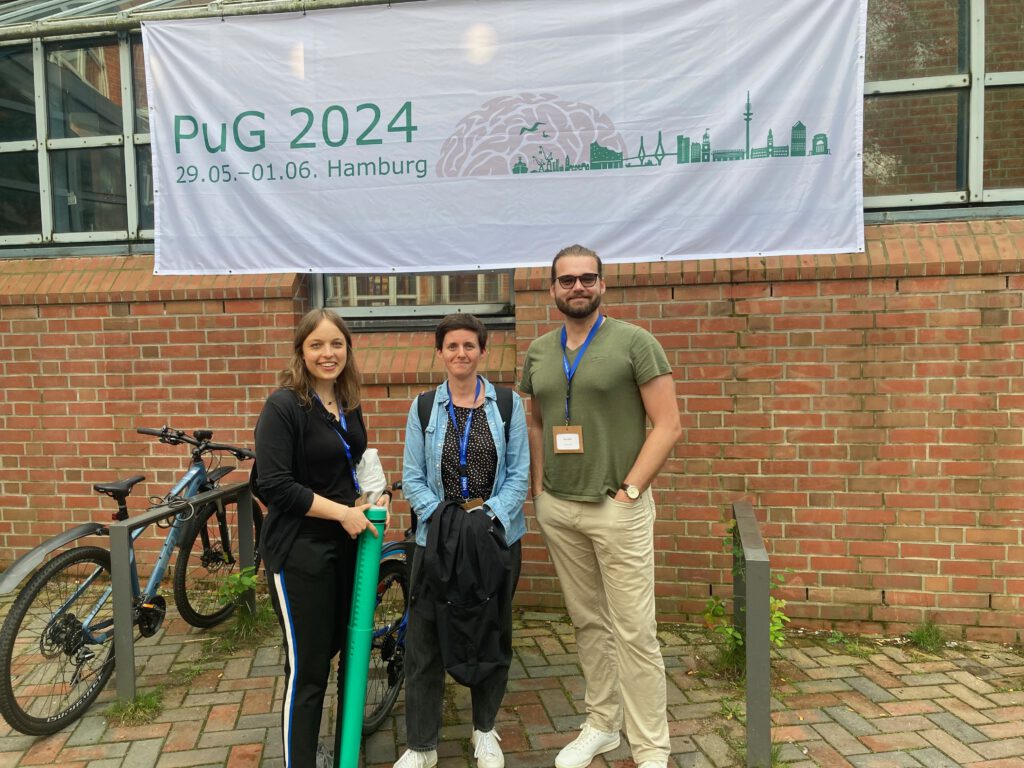In our research project, we investigated how 7-month-old babies respond to happy and fearful faces—and whether the scent of their own father plays a role. For this purpose, we analyzed the babies’ brain activity (so-called EEG measurements).
We wanted to find out to what extent the paternal scent elicits a reaction to frightened faces similar to that already demonstrated for maternal scent. Earlier studies had already shown that maternal scent has a kind of “calming effect” on 7-month-old babies when they look at frightened faces (discernible as an altered brain response). This effect was not observable when the babies smelled another, unfamiliar woman.
For paternal scent, a somewhat different, more complex picture emerged
We were able to observe that it matters whether the babies saw female or male faces. In this context, it appears above all that paternal scent has an effect on male faces—namely, that the babies respond particularly strongly to the fearful emotion.
- Babies respond particularly strongly to fearful male faces when they perceive the scent of their own father.
- This response is evident in the brain activity and affects primarily the attention component.
- Seven-month-old babies showed an altered processing behavior of male, but not of female, emotional faces.
- Interestingly, this effect was observed only for male faces—not for female ones.
- The scent of an unfamiliar father did not trigger this response.
Our results show: the scent of the father can—in a manner similar to that of the mother—influence the emotional processing of faces in babies and play an important role in how babies process emotional information.
Especially for male faces, it appears that paternal scent can direct the baby’s attention to fearful facial expressions. This suggests that the scent of another parent can guide babies’ attention to specific stimuli.
Thus, it can be said that paternal scent influences early socio-emotional processing in infancy. Whether this effect is related to familiarity, for example due to differences in caregiving time, is currently still unclear.
If you are interested, you can find the journal article at this link:
https://osf.io/preprints/psyarxiv/p3kz9_v1
Once again, thank you very much for your participation and active support of our research!
We are very pleased with these exciting findings and are grateful to have gained new insights into early childhood development with this study—which would not have been possible without your support.
